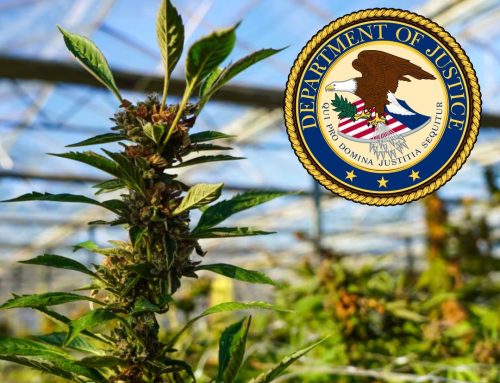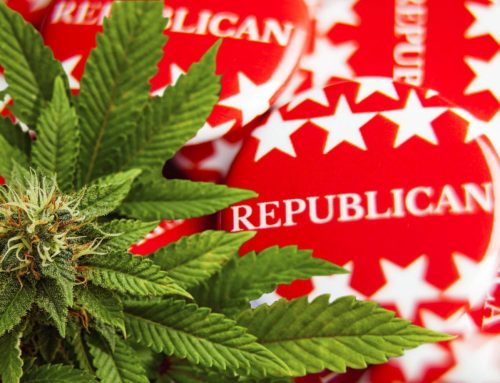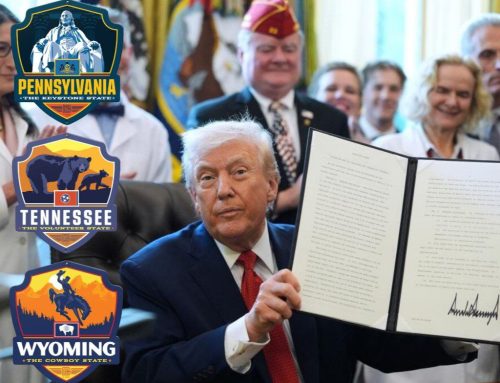Kentucky Governor Urges Trump to Honor Campaign Promise on Cannabis Rescheduling
FRANKFORT – Kentucky Governor Andy Beshear (D) has stepped into the national spotlight, urging President Donald Trump to oppose congressional efforts that would halt the federal rescheduling of cannabis from Schedule I to Schedule III under the Controlled Substances Act (CSA).
In a letter sent to Trump, Beshear invoked the president’s own campaign pledge to “unlock the medical uses of cannabis” as a Schedule III drug, calling the rescheduling a “common-sense” reform with broad support from voters, medical professionals, and even Kentucky’s Republican-led legislature.
The push comes as the U.S. House Appropriations Subcommittee on Commerce, Justice, Science, and Related Agencies recently approved language in the Fiscal Year 2026 appropriations bill that would prohibit the Department of Justice (DOJ), which oversees the Drug Enforcement Administration (DEA), from using funds to reclassify cannabis. The provision, known as Section 607, threatens to derail a process initiated in spring 2024 when the DEA proposed moving cannabis to Schedule III, acknowledging its medical value and lower potential for abuse compared to Schedule I drugs like heroin and LSD.
Beshear’s letter emphasizes the transformative potential of rescheduling. “Patients suffering should have access to safe cannabis for treatment,” he wrote, highlighting its role as an alternative to deadly opioids, a critical issue in Kentucky, which has been hard-hit by the opioid crisis. He also noted that rescheduling would destigmatize medical cannabis, enhance research opportunities, and reduce criminal justice burdens by providing a regulated alternative to illicit markets. The governor underscored bipartisan backing, referencing Kentucky’s Senate Bill 47, signed into law in 2023 with support from Republican supermajorities, which legalized medical cannabis in the state effective January 1, 2025.
The DEA’s proposal, backed by the U.S. Department of Health and Human Services, marks a historic shift in federal drug policy. Schedule III classification would place cannabis alongside substances like ketamine, recognizing its moderate to low potential for dependence. However, the process remains in limbo, complicated by the recent retirement of the DEA administrative law judge overseeing the rescheduling effort and the confirmation of new DEA Administrator Terrance Cole, who has pledged to prioritize the issue.
Beshear also sent a letter to Cole, reiterating his support for rescheduling and urging the DEA to move forward. “This is not common-sense law,” Beshear wrote of the congressional language, arguing that it undermines a process “overwhelmingly supported by the medical and scientific communities as well as the American people – of every political party.” He reminded Trump of his September 2024 campaign statement promising to focus on cannabis research and work with Congress on “common-sense laws.”
Kentucky’s medical cannabis program is already taking shape, with cultivation beginning in July 2025 at sites like Armory Kentucky in Mayfield. The program, set to launch sales later this year, will serve patients with conditions such as chronic pain, epilepsy, and PTSD. Beshear’s advocacy aligns with his broader push for medical freedom and safer communities, noting that legal cannabis programs reduce crime and unregulated drug markets.
As the federal debate unfolds, Beshear’s call to action resonates beyond Kentucky. With public support for cannabis reform at an all-time high, the governor’s letter is a bold reminder that promises made on the campaign trail must translate into policy. Whether Trump will heed this call remains uncertain, but for now, Beshear stands firm, championing a future where medical cannabis is accessible, researched, and respected, proving that common ground can be found in the pursuit of relief and reform.



































